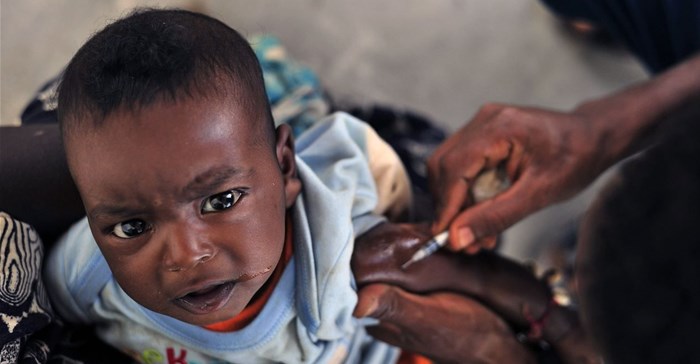Pharma giants set SA vaccine price tag at $734m, confidential contracts reveal

Moreover, the country was forced to overpay for vaccines, paying 33% more than the African Union price for the Pfizer-BioNTech vaccine and paying the Serum Institute of India (SII) 2.5 times more for a generic version of the Oxford-AstraZeneca vaccine compared to the United Kingdom.
These are among the findings of The Health Justice Initiative’s first part of its investigation into the Covid-19 vaccine procurement agreements that the SA Health Ministry entered into with Covax Facility - Gavi Alliance, Janssen Pharmaceutica, Pfizer and the Serum Institute of India between 2020 and 2022.
These documents were provided in response to legal action initiated by HJI, prompting the South African National Department of Health to share an initial set of Covid-19 vaccine procurement agreements with HJI's legal team. This outcome positions South Africa as the first African nation to share crucial information on Covid-19 vaccine procurement that has largely remained inaccessible to most countries.
At a press conference hosted by HJI on Tuesday, 5 September, multi-stakeholders shed light on a stark reality: that Pfizer, J&J and SII all required over the top indemnification protections and rapid indemnification funds to be established as a precondition for supplies.
When looking at the staggering amount overpaid by the SA government, the vaccine contract agreements show that:
- Pfizer charged South Africa $10 a dose, which is 32.5% more than the $6.75 “cost price” it reportedly charged the African Union.
- J&J charged South Africa $10 a dose, which is 15% more than the company charged the EU and about 25% more than the estimated not-for-profit price.
- SII charged SA $5.35 a dose, 2.5 times more than it charged the EU, for 1.5 million doses. The exact price of Gavi-Covax doses is unclear, but the organisation’s “All-Inclusive Weighted Average Estimated Cost per dose” was $10.55 a dose, with a maximum cost of $21.10. A down payment of $19.2m was agreed, with a total bill of $126,6m.
Moreover, the Pfizer contract contains none of the public-interest measures that are contained in some UK and EU vaccine agreements, such as access to test data, march-in rights in the event of abandonment, localised manufacturing, or dose redistribution. Only $20m of the $40m advance payment to Pfizer was refundable should the company fail to deliver doses.
J&J’s $27.5m advance payment was not refundable “in any circumstances”.
South Africa's loss of sovereignty
The contract with Gavi contains no provision for returns or refunds. Gavi provided no guarantee of the actual number of doses or delivery date for Covid-19 vaccines. South Africa remained liable to pay for all of the doses ordered, even after the country was forced to order doses directly from pharmaceutical companies when Gavi failed to deliver.
“This deference to and fear of powerful pharmaceutical companies - in the middle of a crisis and in a Constitutional democracy - is incredibly concerning. It shows how much power was put into the hands of private sector actors and how few options governments had, when acting alone, in the middle of a pandemic,” said Fatima Hassan, founder and director of the HJI.
At HJI’s press conference multi-stakeholders - among them Global Justice Now, O’ Neill Institute and HealthGap - shed light on a stark reality: that these four contracts significantly favour multinational pharmaceutical corporations over South Africa's interests.
They noted how the agreements also relinquish the country’s sovereignty as none of these contracts were negotiated under South African legal jurisdiction. One notable example was the use of English and Welsh law in the agreement involving US-based Johnson & Johnson.
Exposing pandemic agreements
This revelation underscores the pressing concerns about power imbalances within these agreements.
“The agreements placed people and governments in the Global South in the unenviable position of having to secure scarce supplies in a global emergency with unusually hefty demands and conditions, including secrecy, a lack of transparency, and very little leverage against late or no delivery of supplies or inflated prices - resulting in gross profiteering,” said Hassan.
The Group’s analysis sets out why this type of ‘’take it or leave it’’ contracting signals a dangerous precedent for future pandemic-readiness measures and systems.
“The contracts reveal the phenomenal power that pharmaceutical companies wielded in negotiations. In our scramble for desperately needed vaccines, South Africa was forced to hand over unimaginable sums of money for overpriced vaccines doses. We were bullied into unfair and undemocratic terms in contracts that were totally one-sided," Hassan said.
"Put simply, pharmaceutical companies held us to ransom. And we must ask: did they do it to other countries too?”
A global solution for pandemic preparedness
The Group highlights that this is not a problem that can be solved by a single government but requires a regional and global solution and the exercise of state sovereignty.
"Unless acted upon with clear, legally binding international agreement, we will arrive at the next pandemic with little more to enforce fair terms than platitudes and scathing press statements from the ministers and president in SA and other world leaders in the Global South," Hassan remarked.
"This must be deliberated upon in pandemic accord negotiations and revisions of the International Health Regulations currently underway and at the upcoming United Nations General Assembly (UNGA).’’
The SA Health Department has undertaken to share the remainder (part 2) of the documents it was ordered to disclose, and in agreement with HJI, by no later than 29 September, 2023.
Related
Pharma giants push back against Trump's planned tariff rollout 2 Apr 2025 Trump administration begins controversial $11.4bn Covid-19 funding withdrawal 26 Mar 2025 Viatris fined in Morocco over merger notification, sources say 22 Nov 2024 African drug supply chain gets smarter with IBM-powered AI platform 14 Nov 2024 Leadership shakeup at Moderna ahead of major vaccine rollouts 8 Nov 2024 Historic first: Africa hosts Inclusive Health Research Awards 25 Oct 2024


























